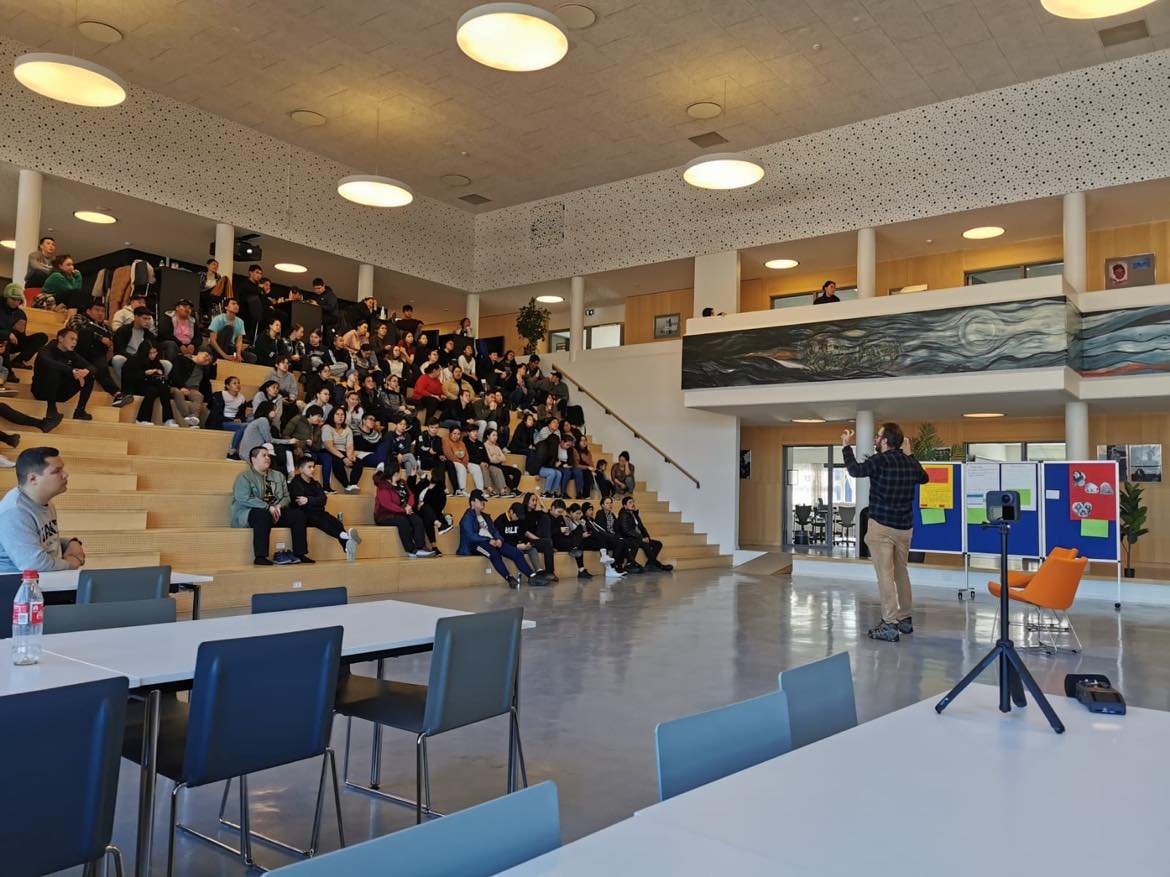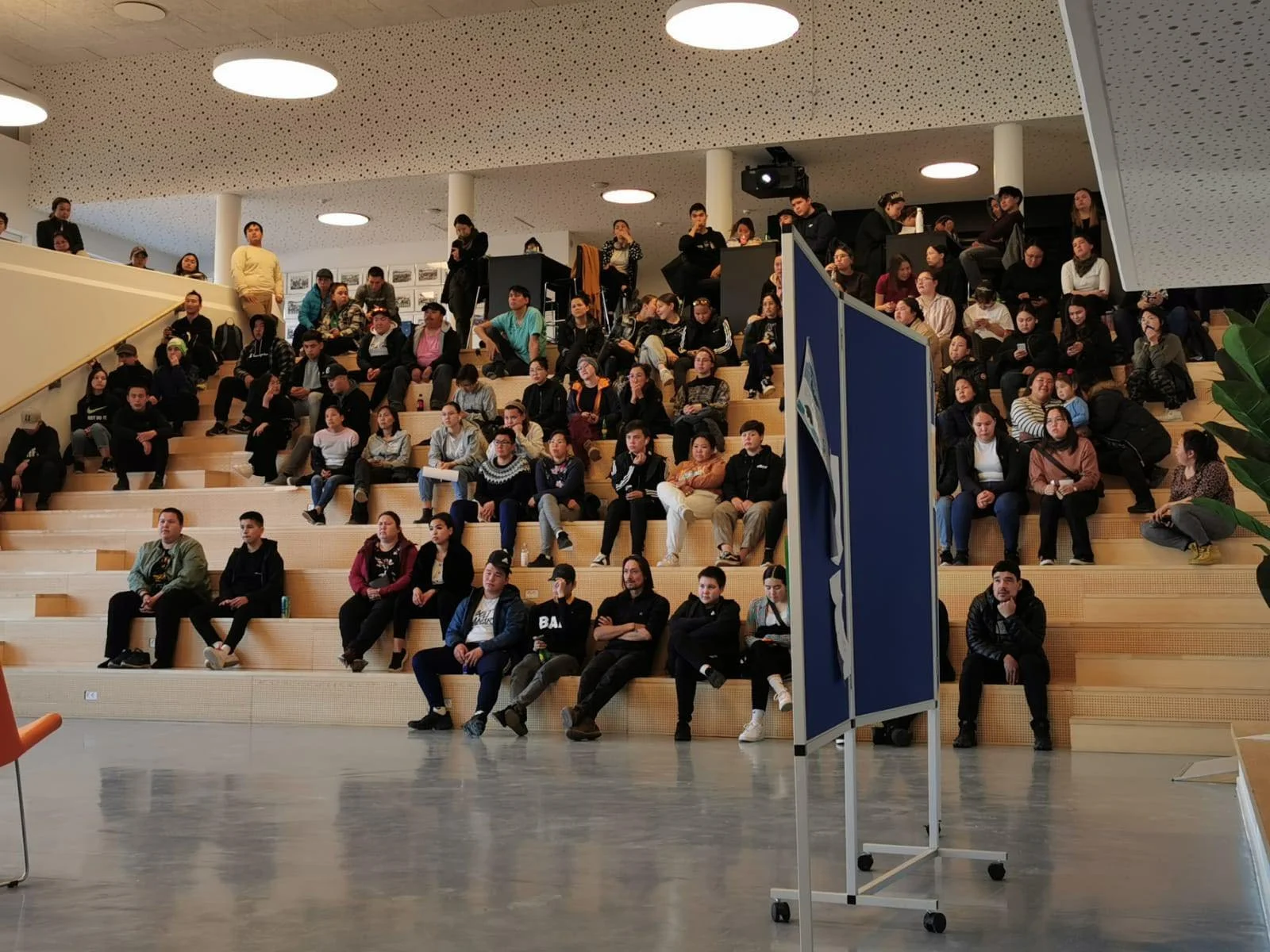Zane Cooper phd research - Evolving relationships between data, energy and extraction in the Arctic
Cooper Zane speaking at Campus Kujalleq. Photo by Per Lykke Søndergaard
I am a doctoral candidate at the Annenberg School for Communication at the University of Pennsylvania, doctoral fellow at Center for Advanced Research in Global Communication (CARGC) and consulting researcher at The McHarg Center at the Weitzman School of Design. My research focuses on the logistical, ideological, and historical entanglements between information infrastructures, energy production, and raw resource extraction. My phd looks at the evolving relationships between data, energy, and extraction in the Arctic, through the lens of cryptocurrency mining in Iceland, and rare earth mining in Greenland.
My work intends to bring the pressing social and political issues of mining and extraction in South Greenland into wider conversations about the future of digital technology and renewable energy. Funded by The Internet Society Foundation and working with a team of researchers at the Center for Advanced Research on Global Communication, and the Internet Society’s Zimbabwe Chapter, this project examines the global politics, human costs, and harms of electronic waste (e-waste), and argues that definitions of e-waste should be expanded to include waste generated in the production process of digital information, including mining and resource extraction. The broader movements of climate and labor justice in the tech and energy industries are deeply connected to what is happening in Narsaq, and South Greenland is an extremely important place where new ideas for new futures are being created. In addition to South Greenland, this project also looks at the politics of e-waste in Amazon data centers in the United States, an e-waste dump in Mexico City, and e-waste management policies in Zimbabwe. We see all of these issues as deeply related, and this project intends to build solidarity amongst global communities and workers dealing with e-waste, with South Greenland as a critical piece of this puzzle.
Speaking at Campus Kujalleq
During my time in Narsaq, I hope to listen and learn from folks about what they want for the future of Narsaq and South Greenland, how mining (or the prospect of mining) has impacted their lives, and how they think about and deal with “waste”, both practically, every day, and in the long-term (radiation, mining waste, pollution, etc). I am very excited to meet and work with residents of Narsaq in the hope of building better local futures.
This is more than simply a research project. We are attempting to build connections among global communities dealing with different aspects of the e-waste problem. One goal is to organize a virtual conference to bring together community members from Greenland, Mexico, the United States, and Zimbabwe to talk about the problems of waste, and find common ground and solidarity in these issues. Another goal of this project is to dismantle colonial language barriers. I hope to work with local translators to make sure the eventual products of this research are translated into Kalaalisut, and made freely available to everyone in Greenland. I hope that other collaborative outcomes of this research will develop during my visit!

